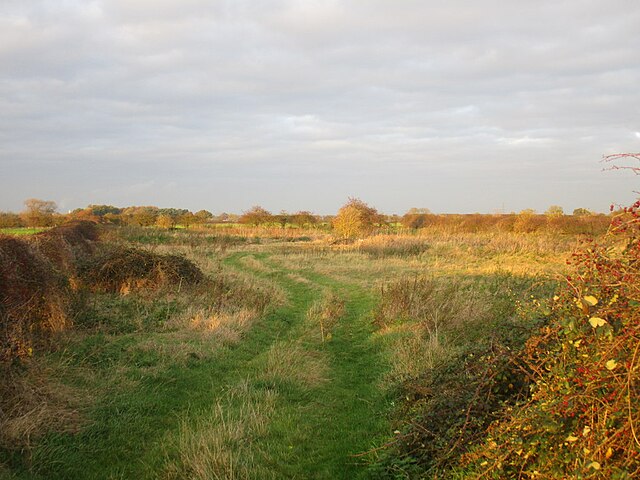
Did you know land in England and Wales can be claimed through the process of Adverse Possession? Whether you want to clear rubbish from unused waste land, help the natural environment or profit you can get land for free if you know what you are doing.
Remember our advice is no substitute for professional legal advice which must always be sought prior to undertaking an adverse possession claim.
Step 1) Understanding Types of Land Ownership
Registered Land: Different rules apply to different types of land. Most land in the UK is registered with HM Land Registry. This means the land ownership details are held by the government on file and can often be purchased for a small fee online. To gain adverse possession of registered land the squatter must hold the land for ten years before applying to gain the title dead. Once the period is up and an application has been made the Land Registry will contact the current registered owners giving them an opportunity to challenge the adverse possession. If challenged, the current owners have a set period of time to remove the challenging party from the land before another adverse possession application can be submitted. Generally registered land is harder to claim through adverse possession given the owner of the land is given ample opportunity to prevent the transfer of title deeds. Additionally, registered land is inherently less likely to be abandoned given the relatively recent introduction of compulsory land registration.
Unregistered Land: Unregistered land covers about 15% of the UK and is generally much easier to claim through adverse possession. Unregistered Land simply means the land is not registered with HM Land Registry meaning the ownership details are unknown – such land does still have owners. Generally, land which has not been sold or transferred in recent decades has evaded the compulsory land registration requirement and makes up most of the unregistered land stock along with crown or government land and large estates. Abandoned land is also generally unregistered with the current owners completely unaware of their ownership (in some cases we have seen land last actively used over a century ago). In this case, adverse possessors must hold the land for 12 years before applying to take control of the title deeds from the Land Registry. They will attempt to contact the current owners (generally an impossible task) along with potentially interested parties – if unopposed the title deeds will be transferred.
Unregistered Land is Generally Easier to Claim:

Given the land ownership details are not on file for unregistered land the likelihood of a successful claim is fair higher than registered land. This is where our product comes in. Using advanced mapping solutions and vast quantities of data, we have mapped out all of the unregistered land in England and Wales to painstaking detail. Finding unregistered land has never been easier – simply purchase a subscription and view the map. Try comparing any land identified on the map with aerial, street view or your local knowledge to find abandoned land which may be worth further investigation for a potential claim.
Other Land Ownership Types: Government, church and crown land has separate stringent requirements for a successful adverse possession. Generally they require at least 30 years of possession to succeed and therefore should be avoided. Both registered and unregistered land can be owned by such bodies so it is important to check with your local authority before beginning a claim. Other niche cases also apply so it is vital to contact a legal profession before undertaking any claim to ensure a successful simple claim.
Step 2) Begin a Possession
Now you have identified your land you can begin a possession. For all adverse claim attempts basic principles apply if you wish to succeed;
- Exclusive Possession – You must ensure any adverse possession claims are treated as your own private land. This means excluding any other individuals for accessing the property. For example, a field will need to be fenced off to prevent unauthorised access. For a property, you must ensure the building is secured by locking doors and repairing or blocking any other entrances (such as open windows).
- Open Possession – All potential adverse possessions must clearly clearly advertise the fact the land is private. You must clearly sign the land ideally with your contact information on signs to ensure the current owner or any other individuals know you are treating the land as your own. Remember, an adverse possession must be very clearly advertised as your property to ensure no doubt and allow the previous landowner to challenge the claim.
- Improve the Property – Adverse possession should not be undertaken as a simple profit making exercise. The importance of Adverse Possession in English law is to ensure abandoned properties are not left as unproductive eye sores. For a successful adverse possession you need to demonstrate how ownership of the land or property has benefited said property. For buildings this means repairing them to acceptable standards. For land this could mean clearing rubbish, improving the character of the land (removing invasive harmful plants such as giant hogweed) and improving the atheistic or natural value of the land (by coppicing trees would historically would have been). Remember you are trying to improve the property for the benefit of the community not just yourself.
- Economic Utilisation – You must prove you are using the property in an economically efficient manner. Coupled with the requirement to show evidence for possession, you may wish to rent out the property, for example, or use the property to make a certain product. Evidence of this is powerful proof of ownership when you come to submit evidence and displays you are trying to improve the property.
Step 3) Apply to Transfer Title Deeds
Once you have waited the required number of years and undertaken all the required steps to prove you have exercised exclusive ownership during the said time period you can now sent off all the evidence and hopefully enjoy your free land!
Important Notes:
Adverse Possession can be a fun and profitable exercise but you must always ensure you engage with a legal professional before undertaking any claims. No information on this site is any substitute for legal knowledge and our mapping product is only a guide to help point you in the right direction. Purchasing a subscription is no guarantee of successful adverse possession. Our product only maps out unregistered land not unowned land and therefore further enquires must always be made – remember all land in the UK has owners.
